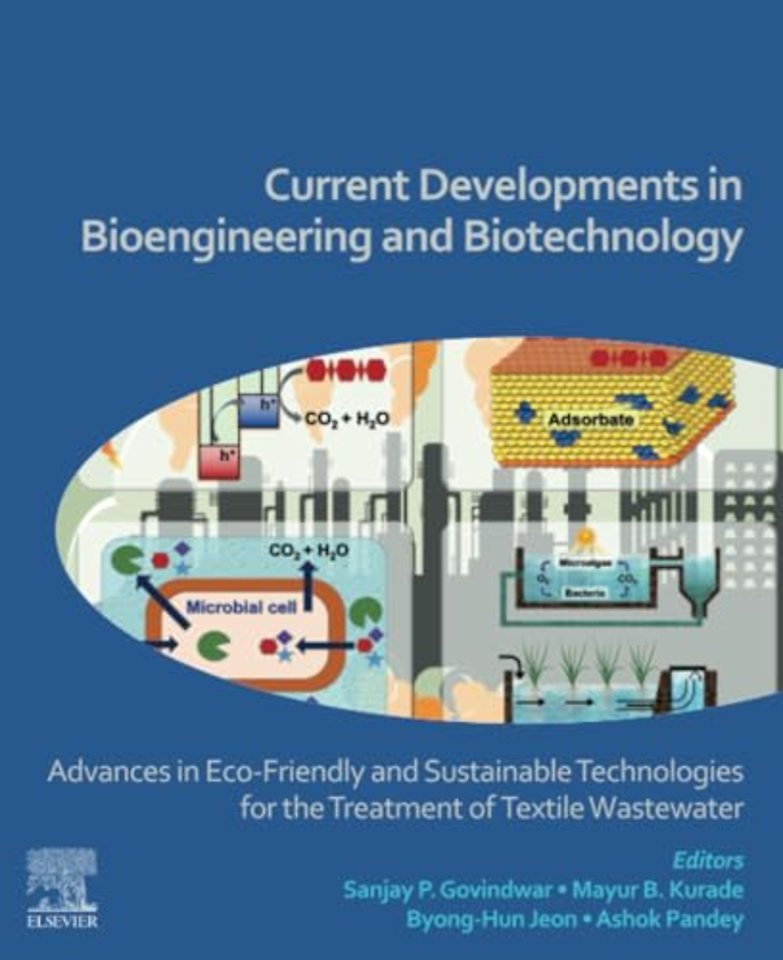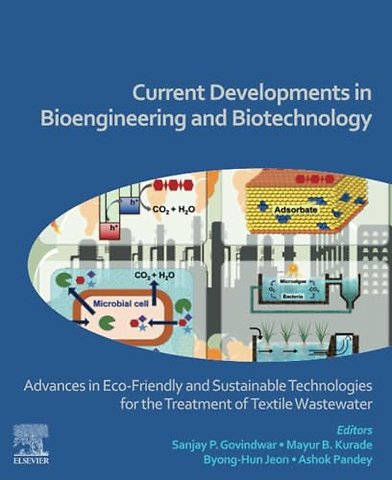1. Introduction: Global scenario of textile pollution; Country-wise industrial contribution, severity, and ecological consequences<br>2. Detrimental effects of synthetic dyes on ecology: Ecotoxicity and its evaluation methods<br>3. Biogenic synthesis of the metal oxide-based photocatalysts for dyes removal<br>4. Recent advances of hybrids layered double hydroxides as catalysts for removal of synthetic dyes from wastewater<br>5. Recent advances in the metal-organic framework and its derivative nanoparticles for effective textile wastewater treatment<br>6. Waste material recycled adsorbent for abatement of textile dyes<br>7. Biochar: A sustainable approach for the adsorptive removal of hazardous textile dyes<br>8. Exploiting waste-biomasses through solid-state fermentation (SSF) approach for efficient treatment of textile wastewater<br>9. Water reclamation from textile dyeing wastewater: a membrane-enabled sustainable approach<br>10. Role of Analytical Techniques in the treatment of synthetic dyes and textile effluent<br>11. Bacterial mediated degradation of synthetic dyes<br>12. Fungal mediated degradation of synthetic dyes<br>13. Yeast mediated degradation of synthetic dyes<br>14. Exploration of Lichens for bioremediation of textile dyes: A journey from hypothesis to evidence<br>15. Extremophiles as an important mediator of choice in biodegradation of synthetic dyes and textile effluent<br>16. Microalgae-based biotechnologies for efficient treatment of diverse dyes from wastewater<br>17. Cactus: A promising candidate for the efficient remediation of hazardous dyes<br>18. Phytoremediation of synthetic dyes and textile effluent<br>19. Mixed microbial consortium for the decolorization of textile dyes<br>20. Enzymes responsible for the metabolism of synthetic dyes<br>21. Optimization: Most influential parameters affecting bioremediation process of dyes and textile wastewater<br>22. Integrated chemical and biological processes for the effective degradation of synthetic dyes<br>23. Advances in constructed wetland systems and its engineered designs for the realistic treatment of textile effluents<br>24. Microbial immobilization for gaining industrial feasibility for textile wastewater treatment<br>25. Bioreactors for dye removal from wastewater<br>26. Bioelectrochemical systems for treatment of textile dyes and wastewaters<br>27. Autochthonous microbes and its efficacy to mitigate environmental pollutants from the textile industry<br>28. Advanced genetic engineering methods for dye degradation<br>29. Systems biology and multi-omics integration of bioprocessing in textile wastewater treatment<br>30. The problems and bottlenecks associated with textile treatment technologies including real scale feasibility issues and their possible solutions

